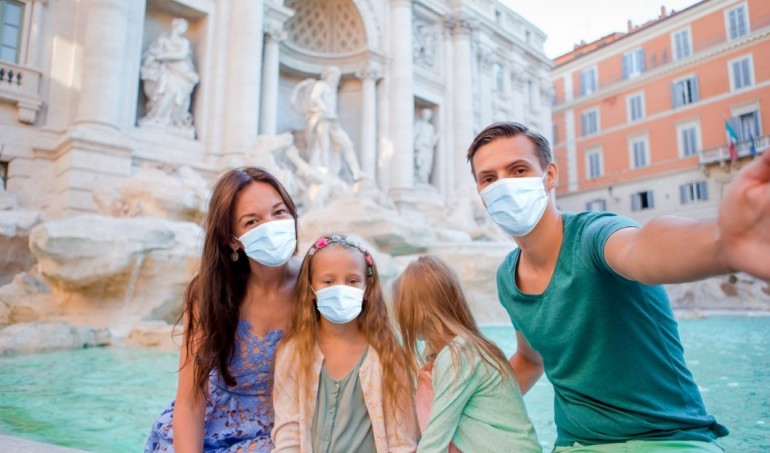Sponsored Listings:
Italy is one of the countries that has been affected the most by the Coronavirus pandemic. And with tourism being one of the most important sectors for the country’s economy (13% of the GDP), a critical situation is projected for the country travel and hospitality industry.
The data from ENIT (the National Tourism Authority) show that between January 1 and April 26, there was a decrease of 63.4% in airport arrivals compared to the same period in 2019. This decrease rose to 94.7% for March and April, continuing the trend of great decline for Italian tourism.
According to estimates, in the first half of 2020, tourism revenues in Italy will decrease by 73% due to the pandemic. The final figures for the first quarter of 2020 already show a drop in turnover of about 15.6 billion euros.
The overall turnover will be just about 16 billion euros, compared to the 57 billion in the same period last year. The summer season will also be severely affected, with an estimated 25 million fewer foreigners arriving between July and September. Adding to the predicted drop in domestic travel, this will amount to 90 million fewer attendances in tourist accommodation.
“The most optimistic forecast says that this year we will lose 75% of revenues. Organized tourism – which includes tour operators and travel agencies – has a turnover of 20 billion euros and we risk losing 14 or 15 billion. No sector can withstand a similar impact,” Pier Ezhaya, director of ASTOI, the association of tour operators of Italy, noted.
The anti-Coronavirus corridor and the population worries
In the devastated panorama of Italian tourism, a Central European plan is now emerging that would bring further problems for the country’s industry. There is a plan of a sort of “anti-Coronavirus tourist corridor” developed by Germany, Austria, the Czech Republic, Slovenia and Croatia.
The idea is to allow citizens to take advantage of the beaches on the Adriatic already in the coming weeks, taking advantage of the limited impact of the pandemic on these countries, unlike Italy which has been hit hard.
Moreover, the spread of the virus has brought a sense of worry and uncertainty amongst the Italian population. According to a survey conducted by Confturismo-Confcommercio, only 20% of Italians would like to go on vacation as soon as the health emergency is over. 32% would like a shorter vacation (2-3 days) in the vicinity of their home, while 57% will not move at all and 15% are uncertain about the financial availability. Considering this and the travel restrictions in other countries, Italy’s wound is set to grow rather than heal during the summer months.

Country to restart tourism
With some measures loosening up in the country from May 4, Italy plans to restart its tourism sector amidst the critical situation described above. There are some indications that point towards a slight improvement of the situation in the coming months.
As reported by ENIT, from March 18 to April 30, there were a total of 617.4 thousand mentions online of the Peninsula which produced 186.4 million interactions. Over the past two weeks, the percentage of citations that contain references to the theme of “tourism” has gradually increased.
With regards to the summer period from June to August, the number of airport bookings shows that there are 407 thousand reservations in Italy (-68.5%). This is more than in Spain (403 thousand) and France (358 thousand). Meanwhile, accommodation facilities are showing a lower availability of beds for the month of June, a signal that gives some hope. The average price of rooms for sale on internet platforms, which suffered a general decline in February and March, is also rising throughout the country.
The analysis of short-term economic scenarios indicates a complete recovery of tourism in a period of three years. Italian tourism as a whole will have recovered the volumes of 2019 and will exceed them with a total of visitors of +4 % compared to 2019, a trend dictated by domestic tourism. Internationally, however, it is a different story. It will take somewhat longer for the industry to fully recover from the effects of the Coronavirus pandemic.
Source: tourism-review.com










